Little progress has been made in Libya’s situation—security, political, economic—in the almost eight years since the overthrow of Colonel Moammar Gadhafi’s regime. Although the United Nations-sponsored ceasefire appears to be holding in Tripoli—which hosts 30 percent of the Libyan population—clashes between militia groups in Libya’s south continue, impeding access to basic services.
Amid Libya’s ongoing chaos, the Italian government organized an international conference in Palermo on November 12 and 13 to advance the U.N.-sponsored stabilization process for Libya. While the Palermo conference was not a success for Italy, some small progress was made towards stabilization.
The backstory to the Palermo conference
The U.N. plan to stabilize Libya calls for organizing a Libyan national conference that would discuss the creation of reliable and transparent political institutions, redistribution of oil revenues, unification of financial institutions, and restructuring and unification of the Libyan national army. The Palermo conference was meant to set the ground for the Libyan national conference to be held in early January 2019.
Italy, for its part, sought to use the Palermo conference to reassert its role as the leading EU player towards Libya. If Italian activism on Libya is largely motivated by historical ties as well as business and energy relations, what makes Libya a national security priority for Italy are the migration influxes departing from Libya to Italian shores. In this regard, Italy’s government wants to show both EU member states and the Italian public that it is capable of taking the lead in tackling this issue.
It’s worth noting that there is also an Italian-French rivalry over Libya. On the economic front, the French energy company Total is expanding its shares in the Libyan energy market, which so far has been dominated by the Italian energy company ENI. The two also compete for diplomatic leadership positions. For instance, French President Emmanuel Macron did not invite any Italian representatives to the meeting he convened between the leaders of the two main Libyan factions in Paris last May, when he pushed for national elections in Libya to be held by December 2018.
What happened in Palermo
Overall, the Palermo conference did not have a large turnout of prominent leaders. With the Palermo conference occurring on the heels of the Paris Peace Forum, the Italians had hoped for a larger international presence. That said, the essential players showed up for at least part of the proceedings.
From the U.S. side, neither President Trump nor his Secretary of State Mike Pompeo attended the conference, sending Acting Assistant Secretary for Near Eastern Affairs David Satterfield instead. From the Russian side, President Vladimir Putin didn’t attend either, though Prime Minister Dmitry Medvedev did.
From the European Union, High Representative for Foreign Affairs Federica Mogherini and European Council President Donald Tusk attended. German Chancellor Angela Merkel did not, and sent Minister of State Niels Annen instead. Likewise, French President Emmanuel Macron did not attend, and sent Foreign Minister Jean-Yves Le Drian. Overall, some 36 delegations from various countries showed up. What Italy cares most about—and is crucial for Libya—is that the U.N. Security Council countries remain united in promoting the U.N. plan for stabilization; although those countries didn’t necessarily send their top leadership to this conference, that overall consensus still appears to hold.
While many important Western actors were missing, Libya’s two main leaders—Fayez Al-Sarraj (head of the U.N.-backed presidential council) and General Khalifa Haftar, who control Tripoli and Benghazi respectively—met on the margin of the conference and reached some understanding.
The road to Palermo was certainly bumpy: Despite the assurances General Haftar made to the chief of the Italian security services over a month ago in Moscow, his presence was uncertain until the last minute. In addition to some pressures from the Italian Ministry of Foreign Affairs, Russia and Egypt also played a role in bringing Haftar to the table. Even so, Haftar attended only the second day, and only the mini-summit with Sarraj, Egyptian President Abdel-Fattah el-Sisi, and Prime Minister Medvedev—he did not participate in the final plenary session.
At Haftar’s request, the Turkish delegation was excluded from the mini-summit with Sarraj (Turkey backs Sarraj). In accommodating the request—though it had little choice, since the success of the summit depended on Haftar’s presence—Italy in a sense legitimized Haftar, while Turkey’s delegation left the conference before the last plenary session.
The only notable positive development is that in the brief time they spent together, Haftar reassured Sarraj that he would not seek to topple Sarraj until new elections are held in Libya.
Why it matters
Like most peace conferences, Palermo wasn’t a watershed for the stabilization of Libya. Nevertheless, there were a few steps forward.
Arguably, Italy succeeded in promoting its bottom-up approach, encouraging dialogue between Libyan actors to agree on the road map for stabilization, unified institutions, and clear electoral legislation as preliminary conditions for any election to be held.
Even if a general consensus was reached on the U.N. road map, however, it is worth recalling that the power of Sarraj and Haftar is extremely fragile. Ultimately, the Libyan crisis is a fight over the country’s resources (mainly oil and gas) that involves local and international actors; any plan without an agreement on distribution of oil revenues is not likely to succeed.
For Italy, the Palermo conference was an attempt to regain influence and control over the Libyan stabilization process, something Macron’s activism last summer risked taking away. The stakes for Italy are high, since what happens in Libya affects the stability and security of Europe’s southern border. Besides ensuring a favorable business climate for Italy’s energy companies to continue operating in the country, Italy would regain some diplomatic credibility within the EU—particularly if it found a solution to the migrant crisis, which is a critical EU issue. Besides, the Italian government also wants to project to the Italian public that it is taking the lead in the solving the migration issue, in preparation for the upcoming EU elections.
Italian leaders should have been more careful about its partners’ sensitivities and better involved fellow European leaders. It is hard to imagine that the Italian leaders’ criticism of the EU would have not produced at least some reticence among EU member states in following the Italian lead. Ultimately, time will tell if the Palermo conference’s spirit might help keep Libya on a path toward eventual stability and prepare the country for its national conference and the following elections.
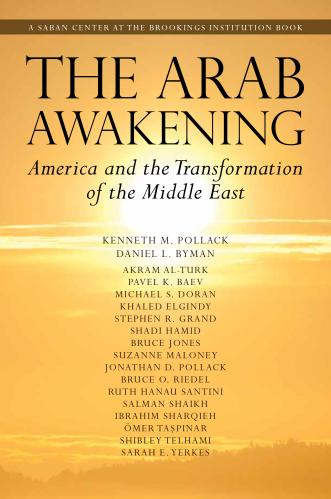
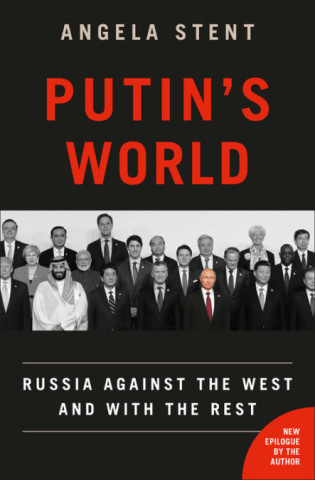
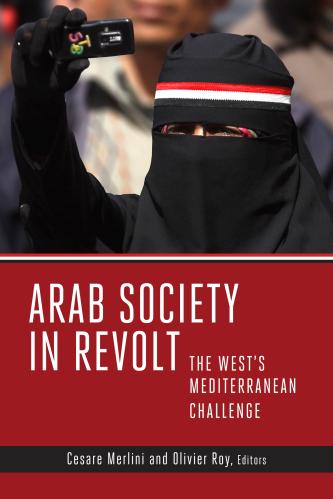
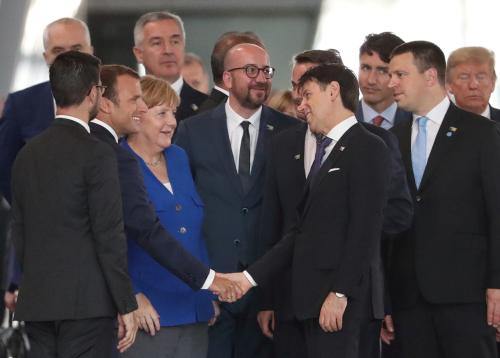
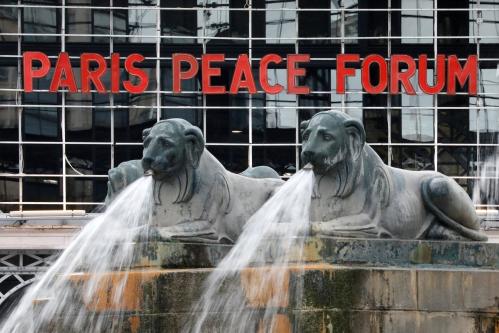

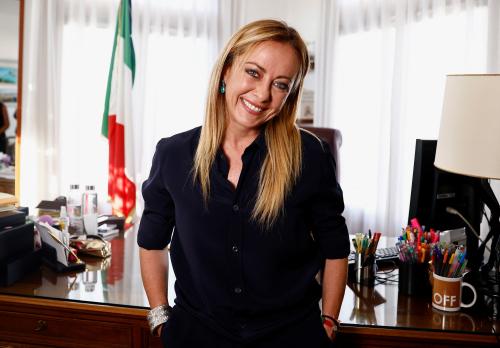
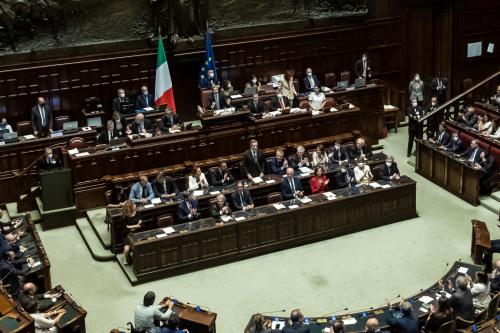
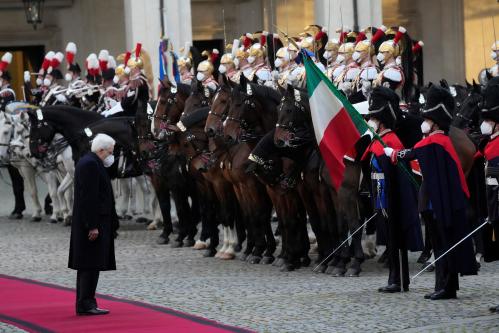
Commentary
The Palermo conference on Libya: A diplomatic test for Italy’s new government
November 19, 2018